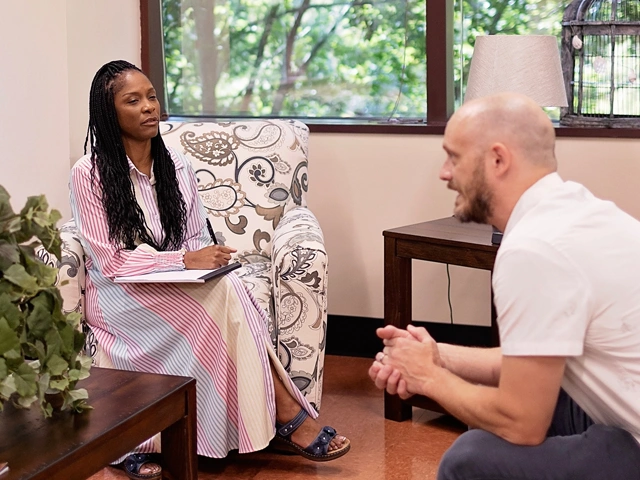
Samford University's social work program continues to excel, as demonstrated by the recently released 2023 report from the Association of Social Work Boards (ASWB), highlighting the exceptional licensure exam performance of its graduates.
ASWB reports that 100% of Samford social work students passed the clinical exam, which assesses specialized clinical knowledge and the application of advanced clinical skills through scenario-based questions. It is designed for individuals who completed their Master of Social Work and are seeking advanced licensure as clinical social workers to provide therapy or counseling services. The overall state pass rate is 64%.
The first-time pass rate for Samford's social work graduate students taking the ASWB master's licensing exam was 78%—the second-highest number for any program in the state. For comparison, the state’s first-time pass rate is 54%.
"Students have the opportunity to sit for the license exams multiple times," said Lisa Baker, who serves as the chair of the Department of Social Work at Samford's School of Public Health. "However, the pass rate on the first attempt reflects the level of preparedness of the student in the program."
Licensure is regulated by individual states to uphold the integrity of the profession and ensure that practicing social workers meet minimum standards of training and experience, enabling them to deliver competent and ethical services.
In Alabama, social workers are licensed at three levels: Bachelor's (LBSW), Master's (LMSW), and Independent Clinical (LICSW). Graduates from accredited social work programs are eligible to take the Bachelor and Master exams after completing their respective degrees. To pursue a clinical license, graduates must hold a master's degree and complete at least two years of practice in a clinical setting.
Samford's Department of Social Work offers a Master of Social Work, a fast-track option and numerous joint degree combinations, such as MSW/Master of Public Health.
Curricula focuses on advanced clinical practice, which equips students for direct practice with individuals, families and small groups. As such, graduates are prepared for practice in a wide variety of settings, including counseling centers, mental health and substance abuse treatment facilities, hospitals and clinics, schools, correctional facilities, child welfare agencies and others.
The high licensure pass rate, Baker said, is a testament to the department's commitment to ensuring students graduate with the skills needed to become competent practitioners.
“Our students trust us with their education, and we take that responsibility seriously,” Baker said. “We aim to provide an outstanding education that not only prepares them for licensure but also for ethical and professional excellence in the field.”
The impressive licensure pass rates motivate Baker and her team to continue raising the bar for the program. While acknowledging these rates are an important metric, Baker emphasizes that they are just one of many ways to measure success, especially given the need to address disparities within the student population.
For Baker, the real testament to the program's quality lies in the success of alumni. Guided by Samford's Christian mission, she remains dedicated to ensuring that students experience personal, professional, and spiritual growth as they prepare for meaningful careers in social work.
Learn more about Samford's Master of Social Work here.
